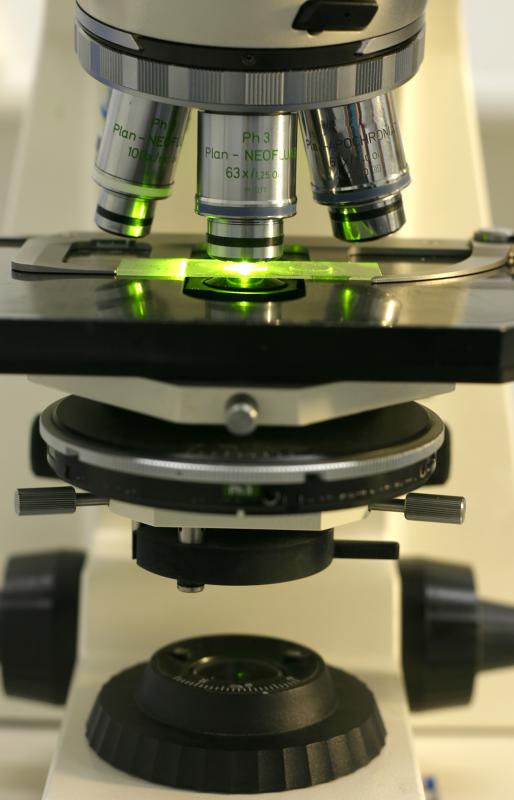At PracticalAdultInsights, we're committed to delivering accurate, trustworthy information. Our expert-authored content is rigorously fact-checked and sourced from credible authorities. Discover how we uphold the highest standards in providing you with reliable knowledge.
How do I Become a Medical Research Scientist?
In order to become a medical research scientist, a person must have a strong interest in science and medicine, and have an affinity for learning. It takes many years of education and training training to become a medical research scientist, and there are several paths to becoming one. All paths begin with obtaining a Bachelor's degree in science.
An aspiring medical researcher will major in biology or a related field such as biochemistry, chemistry, biomedical technology, genetics, physiology. Excellent grades and standardized test scores are needed to move on to become a medical research scientist. It is also very important to have a deep understanding of the scientific method, and an enthusiasm for research. Getting results from scientific research can be a slow process, and researchers must have the patience and stamina to keep working persistently until they achieve a medical breakthrough.

Following the completion of an undergraduate degree, an aspiring medical researcher will go on to earn an M.D., Ph.D., or M.S. degree. The opportunities for career advancement are greatest for individuals with a Doctorate degree. For both M.D. and Ph.D. degree holders, post-graduate training is required to become a medical research scientist. Post doctoral training, also known as a "post-doc," provides researchers with the experience they need to lead their own research teams in the future.

Often, the research someone performs as a post-doc will determine their success as a medical research scientist. Excellent medical research is done at universities with medical schools, and competition is stiff for faculty positions at these institutions. In order to get one, a researcher must have a strong track record of publishing research papers in scholarly journals, and obtaining funding for their research through grants. The post-doc job is the time and place where a researcher must publish in journals and win grants in order to obtain a prestigious job at a university, research center, or pharmaceutical company.

If a person is successful in being hired as a faculty member at a major research university, or as a researcher at a pharmaceutical company, they must continue to produce high quality research in order to keep their position. At universities in the United States, job performance is formally evaluated 5 - 7 years into a person's career. If they have been successful in publishing breakthrough research and supporting their research through grants, they will be given tenure and allowed to continue their career as a medical research scientist.
AS FEATURED ON:
AS FEATURED ON:

















Discussion Comments
I am a computer engineer and right from my graduation everything has been math and computer related. I want to shift my career to immunology research. I understand it could be a very long path for me but I would like to know how I can start pursuing it.
I like this web page about becoming a medical research scientist. This page enlightened me on what it is a must pursue in order for me to become a successful medical research scientist.
@sunnyskys - Your impressions about research technician jobs are right on target. Most high level medical research scientist positions have a ton of qualified applicants fighting over the job.
I think your friend was smart to take that year off medical school and work in the field for a little while. She will hopefully make good contacts while she works that will set her ahead of her classmates at graduation. As with any job success in the medical research field partly depends on who you know.
One of my friends is working towards a career as a biomedical research scientist. I've known her since kindergarten and she has always been super smart.
Just like the article says, she got her degree in biology and went on to medical school. Instead of going to medical school all the way through she took a year off after her sophomore year to participate in a research science fellowship and has presented her research at conferences and been published.
From what she's told me about the industry this article is right on target. It is very competitive and results driven. A research scientist can very easily fade into obscurity if he or she isn't producing and publishing relevant research.
Until my friend went to medical school I had no idea medical research could be so cutthroat!
Post your comments